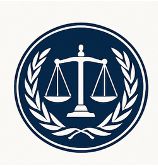

Quantum computing, with its unparalleled processing power, is set to revolutionize global trade by transforming supply chains, finance, and logistics. However, this technological leap also introduces urgent legal and regulatory challenges that traditional trade frameworks are ill-equipped to handle. This article examines the evolving legal landscape around quantum computing in international trade, focusing on five critical domains: data protection, intellectual property (IP), export controls, competition law, and litigation risk.
It outlines how quantum threats to encryption jeopardize secure data exchange and compliance with laws like the GDPR, while also threatening IP enforcement through the potential decryption of trade secrets. Export control regimes are tightening around quantum technologies, raising concerns over market fragmentation and technology protectionism. Meanwhile, rising market concentration among quantum tech firms is drawing scrutiny from antitrust regulators. Through visual tools, legal risk mappings, and comparative analysis, the article calls for urgent adoption of post-quantum cryptographic standards, legal workforce upskilling, and globally coordinated trade policies to ensure a secure and innovation-friendly future
Introduction
Quantum computing stands at the cusp of revolutionizing international trade by unlocking unprecedented computational power, yet it also introduces profound legal risks and regulatory complexities. As nations and corporations race to harness quantum capabilities, legal frameworks must adapt rapidly to manage new threats to data security, intellectual property, and global commerce. This research article systematically analyzes the legal impacts of quantum computing on global trade, reviewing essential domains such as data protection, export controls, intellectual property, antitrust, and the future of regulation.
Quantum computers use principles of quantum mechanics to perform calculations at speeds and scales impossible with classical machines. Their anticipated commercial applications in trade include supply chain optimization, transaction security, logistics modeling, and advanced risk analysis. However, this leap brings legal uncertainty, as traditional regulations struggle to govern such disruptive technology.
2.1 The Imminent Threat to Cryptography
Quantum computers have the potential to break widely-used cryptographic systems (like RSA and ECC) integral to digital trade, financial transactions, and cross-border data flows.
2.2 Legal and Regulatory Repercussions
[image:1]
Figure 1: Timeline—Transition to Quantum-Resistant Cryptography in Trade
3.1 Challenges in Patent and Copyright Law
3.2 Quantum Threats to Trade Secrets
3.3 Collaborative IP Models
4.1 Export and Import Restrictions
Quantum technology is considered dual-use, with military and commercial relevance. As such:
4.2 Fragmentation and Trade Tensions
[image:2]
Figure 2: Growth in Quantum-related Export Control Measures, 2020–2025
Quantum computing’s development is dominated by a small group of tech giants, raising significant competition law challenges:
|
Legal Area |
Quantum-Specific Risk |
Trade Impact |
|
Data Protection |
Obsolescence of current encryption standards |
Export/import data, financial transactions[4] |
|
Intellectual Property |
Patentability of quantum tech, IP theft via quantum processes |
Licensing, cross-border R&D |
|
Export Controls |
Stringent licensing, “deemed export” scrutiny, supply chain risk |
International tech transfer |
|
Antitrust/Competition |
Concentration, collusion, market abuse |
Barriers to entry, stifled innovation |
|
Dispute/Litigation Risk |
Increase in cyber-breaches, negligence suits, regulatory penalties |
Class actions, insurance claims |
Table 1: Legal Risk Mapping for Quantum in Trade (2025)
|
Factor |
Classical Computing |
Quantum Computing |
|
Data Security |
Relies on standard encryption |
Requires post-quantum cryptography |
|
IP Law |
Established frameworks |
New patent/copyright challenges |
|
Export Controls |
Focused on semiconductors/AI |
Expanded to quantum tech, software |
|
Antitrust Concerns |
Moderate tech concentration |
Higher risk, limited providers |
|
Litigation Risk |
Conventional cyber risks |
Heightened due to cryptographic failures |
Figure 3: Comparative Legal Risks in Trade—Classical vs. Quantum Computing
Conclusion
Quantum computing is transforming the legal landscape of international trade. It heralds breakthroughs in efficiency and new market opportunities, but also exposes gaps in data security, IP protection, export regulation, and antitrust enforcement. A coordinated, forward-looking legal strategy—incorporating new cryptographic standards, international policy harmonization, and continuous legal education—is vital to safeguard trade in the quantum era. Nations, businesses, and the legal community must work together to ensure that the quantum leap bolsters, rather than destabilizes, the global trading system.
[image:1]
[image:2]
[image:3]
References
